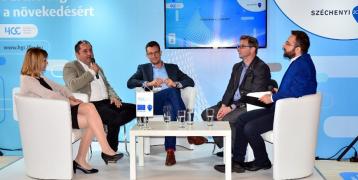Bosnia and Herzegovina
Fake organisation
Moldova
Ukraine
Région de Bruxelles-Capitale/ Brussels Hoofdstedelijk Gewest
Prov. Antwerpen
Prov. Limburg (BE)
Prov. Oost-Vlaanderen
Prov. Vlaams-Brabant
Prov. West-Vlaanderen
Prov. Brabant Wallon
Prov. Hainaut
Prov. Liège
Prov. Luxembourg (BE)
Prov. Namur
Extra-Regio NUTS 2
Severozapaden
Severen tsentralen
Severoiztochen
Yugoiztochen
Yugozapaden
Yuzhen tsentralen
Extra-Regio NUTS 2
Praha
Střední Čechy
Jihozápad
Severozápad
Severovýchod
Jihovýchod
Střední Morava
Moravskoslezsko
Extra-Regio NUTS 2
Hovedstaden
Sjælland
Syddanmark
Midtjylland
Nordjylland
Extra-Regio NUTS 2
Stuttgart
Karlsruhe
Freiburg
Tübingen
Oberbayern
Niederbayern
Oberpfalz
Oberfranken
Mittelfranken
Unterfranken
Schwaben
Berlin
Brandenburg
Bremen
Hamburg
Darmstadt
Gießen
Kassel
Mecklenburg-Vorpommern
Braunschweig
Hannover
Lüneburg
Weser-Ems
Düsseldorf
Köln
Münster
Detmold
Arnsberg
Koblenz
Trier
Rheinhessen-Pfalz
Saarland
Dresden
Chemnitz
Leipzig
Sachsen-Anhalt
Schleswig-Holstein
Thüringen
Extra-Regio NUTS 2
Eesti
Extra-Regio NUTS 2
Northern and Western
Southern
Eastern and Midland
Extra-Regio NUTS 2
Attiki
Voreio Aigaio
Notio Aigaio
Kriti
Anatoliki Makedonia, Thraki
Kentriki Makedonia
Dytiki Makedonia
Ipeiros
Thessalia
Ionia Nisia
Dytiki Elláda
Sterea Elláda
Peloponnisos
Extra-Regio NUTS 2
Galicia
Principado de Asturias
Cantabria
País Vasco
Comunidad Foral de Navarra
La Rioja
Aragón
Comunidad de Madrid
Castilla y León
Castilla-La Mancha
Extremadura
Cataluña
Comunitat Valenciana
Illes Balears
Andalucía
Región de Murcia
Ciudad de Ceuta
Ciudad de Melilla
Canarias
Extra-Regio NUTS 2
Ile-de-France
Centre — Val de Loire
Bourgogne
Franche-Comté
Basse-Normandie
Haute-Normandie
Nord-Pas de Calais
Picardie
Alsace
Champagne-Ardenne
Lorraine
Pays de la Loire
Bretagne
Aquitaine
Limousin
Poitou-Charentes
Languedoc-Roussillon
Midi-Pyrénées
Auvergne
Rhône-Alpes
Provence-Alpes-Côte d’Azur
Corse
Guadeloupe
Martinique
Guyane
La Réunion
Mayotte
Extra-Regio NUTS 2
Panonska Hrvatska
Jadranska Hrvatska
Grad Zagreb
Sjeverna Hrvatska
Extra-Regio NUTS 2
Piemonte
Valle d’Aosta/Vallée d’Aoste
Liguria
Lombardia
Abruzzo
Molise
Campania
Puglia
Basilicata
Calabria
Sicilia
Sardegna
Provincia Autonoma di Bolzano/Bozen
Provincia Autonoma di Trento
Veneto
Friuli-Venezia Giulia
Emilia-Romagna
Toscana
Umbria
Marche
Lazio
Extra-Regio NUTS 2
Kýpros
Extra-Regio NUTS 2
Latvija
Extra-Regio NUTS 2
Sostinės regionas
Vidurio ir vakarų Lietuvos regionas
Extra-Regio NUTS 2
Luxembourg
Extra-Regio NUTS 2
Budapest
Pest
Közép-Dunántúl
Nyugat-Dunántúl
Dél-Dunántúl
Észak-Magyarország
Észak-Alföld
Dél-Alföld
Extra-Regio NUTS 2
Malta
Extra-Regio NUTS 2
Groningen
Friesland (NL)
Drenthe
Overijssel
Gelderland
Flevoland
Utrecht
Noord-Holland
Zuid-Holland
Zeeland
Noord-Brabant
Limburg (NL)
Extra-Regio NUTS 2
Burgenland
Niederösterreich
Wien
Kärnten
Steiermark
Oberösterreich
Salzburg
Tirol
Vorarlberg
Extra-Regio NUTS 2
Małopolskie
Śląskie
Wielkopolskie
Zachodniopomorskie
Lubuskie
Dolnośląskie
Opolskie
Kujawsko-pomorskie
Warmińsko-mazurskie
Pomorskie
Łódzkie
Świętokrzyskie
Lubelskie
Podkarpackie
Podlaskie
Warszawski stołeczny
Mazowiecki regionalny
Extra-Regio NUTS 2
Norte
Algarve
Centro (PT)
Área Metropolitana de Lisboa
Alentejo
Região Autónoma dos Açores
Região Autónoma da Madeira
Extra-Regio NUTS 2
Nord-Vest
Centru
Nord-Est
Sud-Est
Sud-Muntenia
Bucureşti-Ilfov
Sud-Vest Oltenia
Vest
Extra-Regio NUTS 2
Vzhodna Slovenija
Zahodna Slovenija
Extra-Regio NUTS 2
Bratislavský kraj
Západné Slovensko
Stredné Slovensko
Východné Slovensko
Extra-Regio NUTS 2
Länsi-Suomi
Helsinki-Uusimaa
Etelä-Suomi
Pohjois- ja Itä-Suomi
Åland
Extra-Regio NUTS 2
Stockholm
Östra Mellansverige
Småland med öarna
Sydsverige
Västsverige
Norra Mellansverige
Mellersta Norrland
Övre Norrland
Extra-Regio NUTS 2
Tees Valley and Durham
Northumberland and Tyne and Wear
Cumbria
Greater Manchester
Lancashire
Cheshire
Merseyside
East Yorkshire and Northern Lincolnshire
North Yorkshire
South Yorkshire
West Yorkshire
Derbyshire and Nottinghamshire
Leicestershire, Rutland and Northamptonshire
Lincolnshire
Herefordshire, Worcestershire and Warwickshire
Shropshire and Staffordshire
West Midlands
East Anglia
Bedfordshire and Hertfordshire
Essex
Inner London — West
Inner London — East
Outer London — East and North East
Outer London — South
Outer London — West and North West
Berkshire, Buckinghamshire and Oxfordshire
Surrey, East and West Sussex
Hampshire and Isle of Wight
Kent
Gloucestershire, Wiltshire and Bristol/Bath area
Dorset and Somerset
Cornwall and Isles of Scilly
Devon
West Wales and The Valleys
East Wales
North Eastern Scotland
Highlands and Islands
Eastern Scotland
West Central Scotland
Southern Scotland
Northern Ireland
Extra-Regio NUTS 2
Ísland
Extra-Regio NUTS 2
Liechtenstein
Extra-Regio NUTS 2
Innlandet
Trøndelag
Nord-Norge
Oslo og Viken
Agder og Sør-Østlandet
Vestlandet
Svalbard og Jan Mayen
Extra-Regio NUTS 2
Région lémanique
Espace Mittelland
Nordwestschweiz
Zürich
Ostschweiz
Zentralschweiz
Ticino
Extra-Regio NUTS 2
Crna Gora
Extra-Regio NUTS 2
Severna Makedonija
Extra-Regio NUTS 2
Veri
Qender
Jug
Extra-Regio NUTS 2
City of Belgrade
Autonomous Province of Vojvodina
Region Šumadije i Zapadne Srbije
Region Južne i Istočne Srbije
Extra-Regio NUTS 2
İstanbul
Tekirdağ, Edirne, Kırklareli
Balıkesir, Çanakkale
İzmir
Aydın, Denizli, Muğla
Manisa, Afyonkarahisar, Kütahya, Uşak
Bursa, Eskişehir, Bilecik
Kocaeli, Sakarya, Düzce, Bolu, Yalova
Ankara
Konya, Karaman
Antalya, Isparta, Burdur
Adana, Mersin
Hatay, Kahramanmaraş, Osmaniye
Kırıkkale, Aksaray, Niğde, Nevşehir, Kırşehir
Kayseri, Sivas, Yozgat
Zonguldak, Karabük, Bartın
Kastamonu, Çankırı, Sinop
Samsun, Tokat, Çorum, Amasya
Trabzon, Ordu, Giresun, Rize, Artvin, Gümüşhane
Erzurum, Erzincan, Bayburt
Ağrı, Kars, Iğdır, Ardahan
Malatya, Elazığ, Bingöl, Tunceli
Van, Muş, Bitlis, Hakkari
Gaziantep, Adıyaman, Kilis
Şanlıurfa, Diyarbakır
Mardin, Batman, Şırnak, Siirt
Extra-Regio NUTS 2
